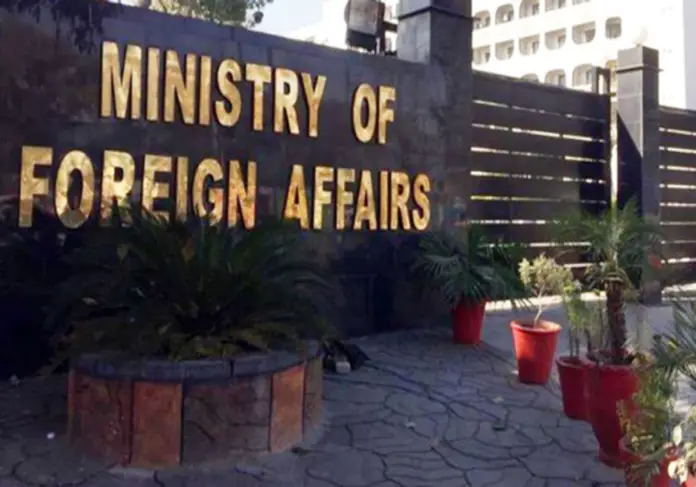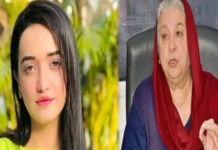The Foreign Office (FO) on Thursday urged the international community to take notice of India being involved in state-sponsored terrorism in Pakistan.
In her weekly media briefing, FO Spokesperson Mumtaz Zehra Baloch regretted the United States’ (US) decision to include Pakistan’s name in the list of countries where religious freedom is violated, while not including India in it which, she said, showed discrimination. Earlier this month, Pakistan, China, Iran and Russia, among others, were designated as countries of particular concern under the Religious Freedom Act over severe violations, US Secretary of State Antony Blinken had said.
In an annual report, the US Commission on International Religious Freedom — which is appointed to offer recommendations but does not set US policy — had voiced wide concern about South Asia and also backed the State Department’s inclusion of Pakistan on the blacklist. Meanwhile in India, the commission had pointed to “numerous” attacks on religious minorities, particularly Muslims and Christians, in 2021 as Prime Minister Narendra Modi’s government promoted “its ideological vision of a Hindu state” through policies hostile to minorities.
“Religious freedom conditions in India significantly worsened,” the report had said. Speaking on the matter, the FO said that “India was not included in the list despite the recommendation of the US Commission”. “It has been 30 years since the martyrdom of Babri Masjid,” Baloch said. The spokesperson also said that “Pakistan has faced terrorism for a long time”. “There are no safe havens for terrorists in Pakistan. India is involved in state terrorism in Pakistan. The international community should take notice of this matter,” she said.
“Action should be taken against the forces involved in terrorism in Pakistan,” the spokesperson added. She also expressed disappointment over India having declined to grant visas to Pakistan’s visually impaired cricket team which had soured already tense relations.
Meanwhile, Foreign Minister (FM) Bilawal Bhutto Zardari is on a visit to Indonesia to participate in the Bali Democracy Conference. The spokesperson also informed media that the FM met his Indonesian counterpart on the sidelines of the event. “The cooperation between the two countries continues in various field,” the spokesperson said. She also informed the media of FM Bilawal’s meeting with his Bosnian counterpart Dr Basira Turkovic. Bilawal is expected to leave for Singapore today, the FO sources told journalists.
During the briefing, the spokesperson further stated that the Organization of Islamic Cooperation (OIC) Secretary-General Hissein Brahim Taha will pay a two-day visit to Pakistan on December 11 and 12 during which he is scheduled to meet the FM and visit Azad Kashmir. Also, the FO also said that the Charge d’ Affairs of Pakistan in Kabul, Ubaidur Rehman Nizamani has visited the security guard, Sepoy Israr Mohammad, who was critically wounded while protecting the ambassador during an attack fired at the Pakistan embassy in the Afghan capital.
“Nizamani has been called to Pakistan,” Baloch told reporters adding that “it is hoped that the Afghan interim government will provide security to the embassy.” Earlier this week the FO had said that Pakistan remained in active contact with the Afghan authorities on the matter of a terrorist attack on the country’s Head of Mission in Kabul and expressed the confidence that the perpetrators and their abettors would be brought to account.
Responding to media queries regarding remarks reportedly made by Taliban spokesman Zabihullah Mujahid, Baloch had said that it was an ongoing investigation and that Pakistan was closely following it. “Pakistan remains resolute in our commitment to fight the scourge of terrorism,” she added.
Also, Pakistan on Thursday said that the journalists in Indian Illegally Occupied Jammu and Kashmir (IIOJK) were working under intense pressure, facing intimidation, assault and arrests which cannot hide the true face of the Indian Occupation from the rest of the world. Balochtold the media that the media policy enforced in IIOJK was aimed at curtailing free flow of information and to make media a mere propagator of India’s disinformation campaign.







